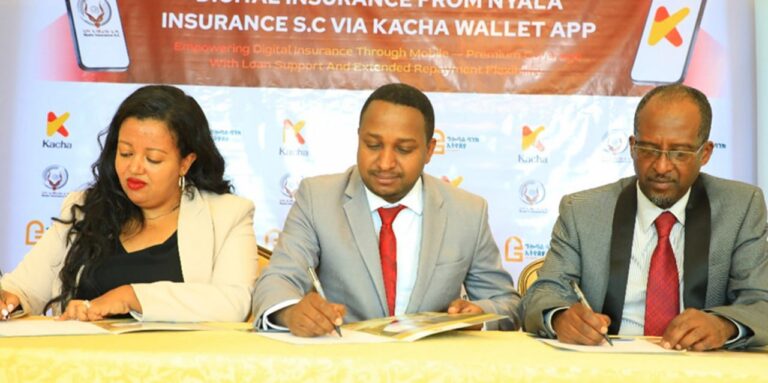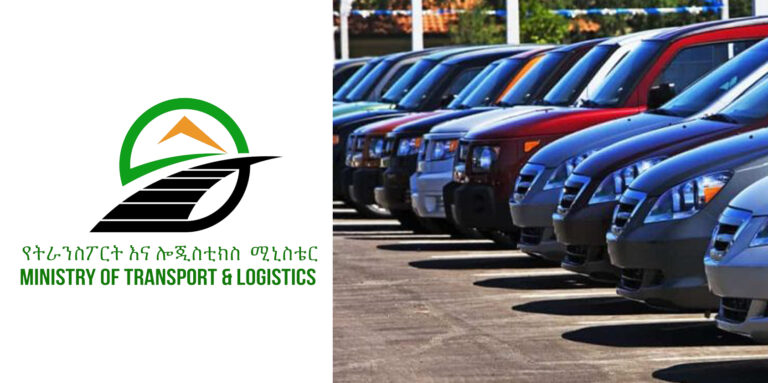Nyala Insurance S.C. (NISCO) has signed a memorandum of understanding with Global Bank Ethiopia and Kacha Digital Financial Service to provide digital insurance premium financing services at an event held at Check-Inn Hotel on July 22, 2025.
With over 30 years of experience in the Ethiopian insurance sector, Nyala Insurance is now pioneering a digital transformation that allows customers to purchase car insurance coverage directly from their mobile devices eliminating the need to visit a physical branch. Through this service, users can buy policies anytime, anywhere, via their phones.
Kacha Digital Financial Service provides the technology and application platform for the service, with Global Bank Ethiopia offering access to premium loans for customers who choose to pay in installments. The Kacha app can be downloaded from the Google Play Store or Apple App Store for access to the service. Flexible loan repayment terms are available, with choices of 1, 3, 6, or 9 months based on customer preferences.
During the signing ceremony, Tegegn Masresha, Chief Customer Management Officer at Nyala Insurance, emphasized the company’s continuous initiatives to improve customer access and service delivery.
“Nyala Insurance is dedicated to collaborating with strategic partners to enhance and innovate its services for broader customer access. The Memorandum of Understanding signed today reflects this dedication. The introduction of the premium loan service is a major step towards increasing accessibility and affordability of insurance for our clients.”
Similarly, Mekdes Bekele, Director of Digital Banking at Global Bank Ethiopia, emphasized that the bank is dedicated to providing efficient, user-friendly, and trustworthy services using cutting-edge digital solutions. She highlighted that the partnership on the digital insurance project aligns with the bank’s strategic focus on digital financial services and expressed pride in contributing to enhancing insurance accessibility nationwide.

Ato Abraham Tilahun, CEO of Kacha Digital Financial Service, emphasized on his part that that Kacha is dedicated to ensuring that digital financial services are available to everyone. The collaboration with Nyala Insurance tackles a significant obstacle by providing customers with easier access to insurance coverage through digital solutions.
The increasing costs of insurance premiums in Ethiopia have created challenges for individuals seeking coverage, leaving them vulnerable to financial risks in unforeseen circumstances. The introduction of this digital insurance and premium loan service aims to bridge this gap by providing cost-effective and convenient protection through mobile platforms. This initiative allows customers to easily obtain insurance coverage without the need for in-person visits to branches, representing a significant advancement in expanding insurance accessibility across the country.
Nyala Insurance S.C. (NISCO) is one of the best-performing companies in the Ethiopian insurance industry and is known for providing insurance products tailored to customer needs and wants.
NISCO currently operates around 50 customer experience hubs (branches) across the nation, with a paid-up capital and assets of Birr 1.2 billion and Birr 4.5 billion, respectively.








